Benefits of Adapted Books for Special Education
Would you agree that one of the challenges in teaching students with disabilities in high school is finding appropriate materials and resources?
What if I told you there is an amazing learning tool that can unlock the learning potential of secondary students with disabilities AND these are readily-available options?
Enter adapted books!
As a learning tool, adapted books for special education are a game-changer with benefits for students that can be evident almost immediately!
What are adapted books?
Adapted books are designed to be more accessible in order to meet the needs of a variety of learners. Adapted books seek to remove the barriers that exist for many students to access engaging and appropriate books.
Adapted books might include tactile elements, simplified text, visual supports, or interactive features.
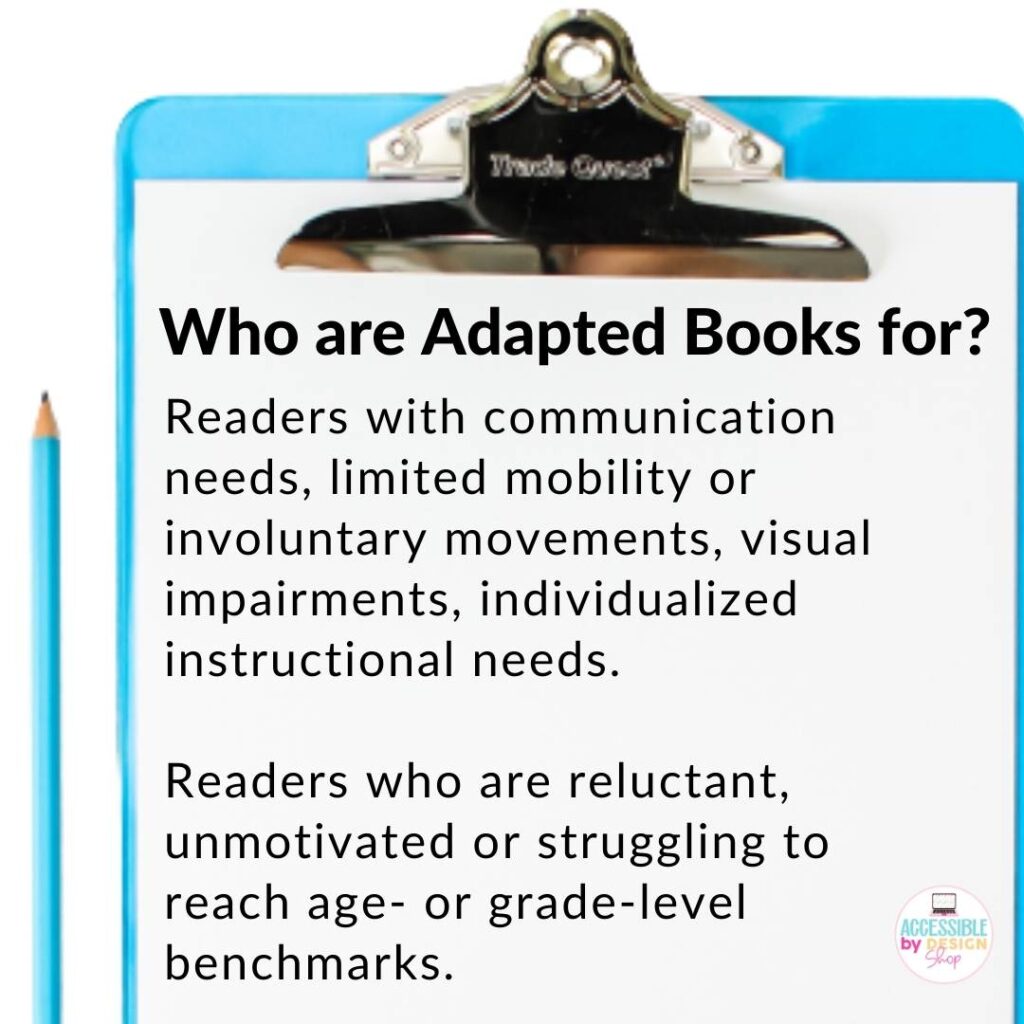
When to use adapted books?
Adapted books are great options for a wide variety of students for so many reasons!
First, they cater to the diverse learning needs of students with disabilities including:
- Readers with communication needs (AAC, eye-gaze systems, speech-generating systems)
- Readers with limited mobility or involuntary movements
- Readers with visual impairments
- Readers who are reluctant or unmotivated
- Readers who are struggling to reach age- or grade-level benchmarks
- Readers with individualized instructional needs
Since there are so many students who can benefit from having a wide assortment of adapted books on hand is ideal. It means you can select appropriate themes and topics to engage students’ interests when you need to.
For example, if you have a student who loves learning about planets and space then this adapted book about the solar system would be perfect. It’s a versatile resource that covers essential topics related to the solar system such as the milky way galaxy, planets, celestial objects, and even black holes!
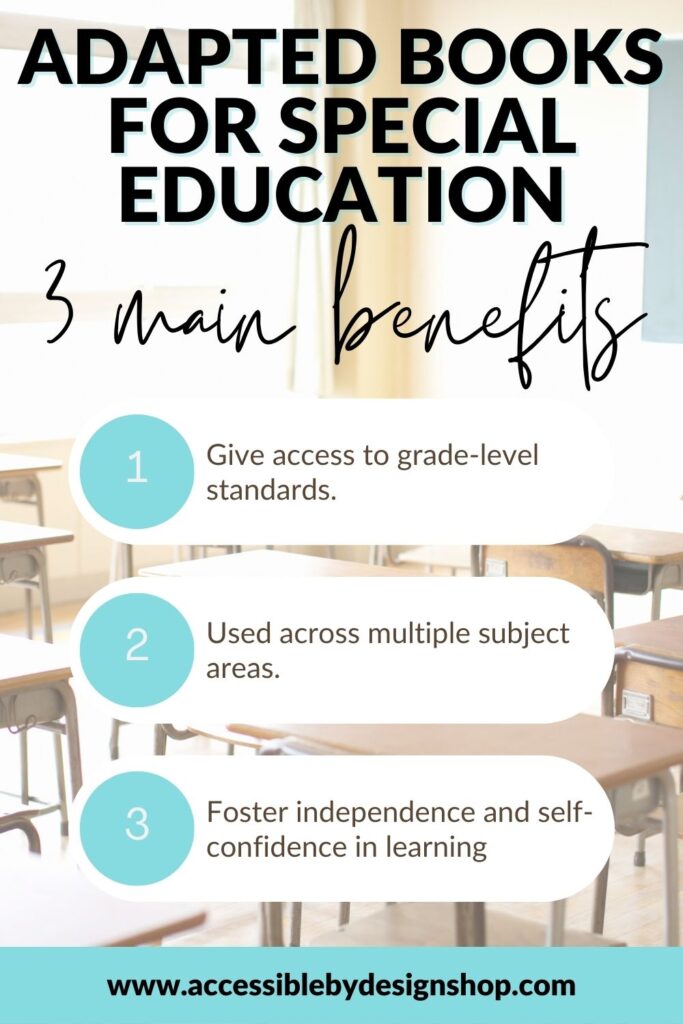
Finally, you can use adapted books for special education to adapt content and format based on student abilities and goals. Through the use of realistic images and visuals that are age-appropriate, you can use adapted books throughout your curriculum. Plus, you can use them to assess individual student needs and preferences too.
For more on how to use adaptive books for special education check out this article: Adapting Books to Increase Accessibility: A Multisensory Approach | n2y Blog.
Benefits of Adapted Books
In my years of teaching, I have found that adapted books for special education can be a real game-changer for students. Secondary students with disabilities benefit so much from adapted books. Read on for 3 benefits that can be immediate for your students!
Adapted books can break down age-appropriate standards (which can be complex!) into easily understandable language with visuals. So adapted books are both age-appropriate and developmentally appropriate!
What’s more, adapted books for special education can give access to grade-level standards. One required unit in our science curriculum is light energy so using this adapted book all about light energy is ideal. With this 13-page book, students learn how light energy is made, how it moves, as well as types of light energy and examples.
Adapted books can be used across multiple subject areas. For example, adapted books make complex science standards accessible for students in special education classes in high school. Take this adapted book about fossils. It takes what is a complex topic and over the course of about 15 pages, it teaches students different types of fossils, how they are formed, and why fossils are important.
Adapted books can foster independence and self-confidence in learning. All readers can feel a sense of accomplishment and inclusion when provided with an adapted book to meet their needs. Adapted books in special education can positively impact academic progress by promoting engagement and comprehension in a wide variety of subjects.
Get started with adapted books with this FREE adapted book for special education all about nutrition labels.
Final takeaway
Using adapted books as an accommodation for students with disabilities can unlock their learning potential. With the ability to increase accessibility for such a wide variety of learners, enough cannot be said about the transformative power of adapted books for special education.



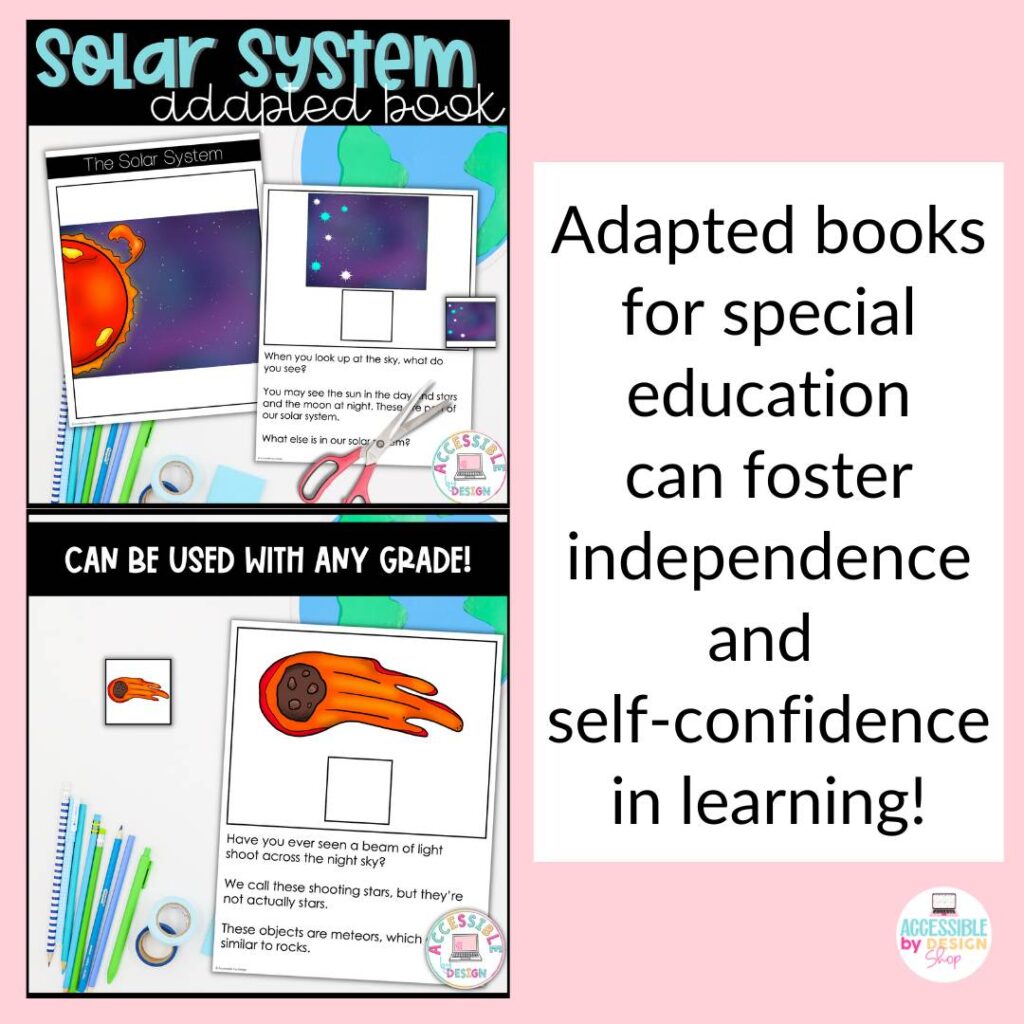
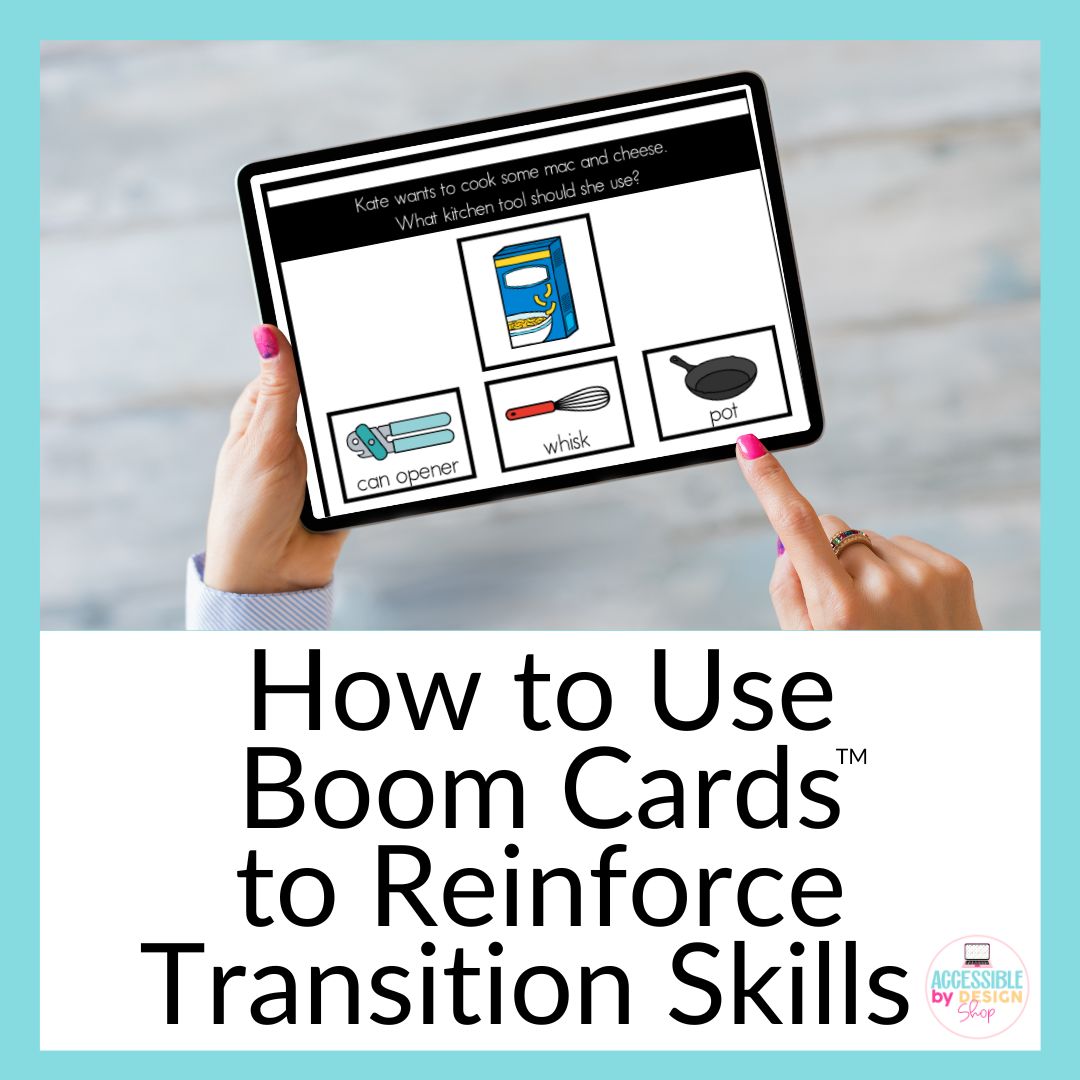
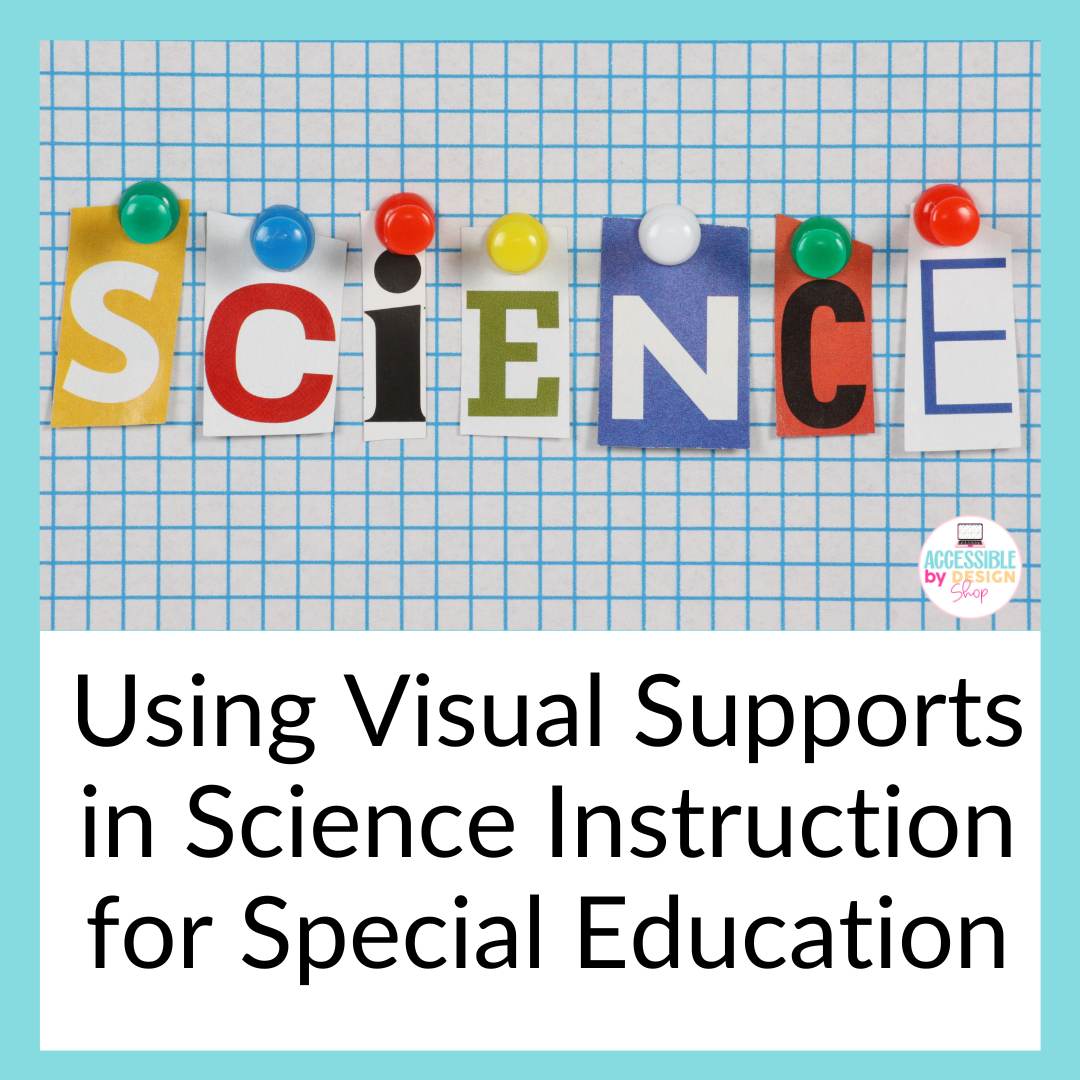
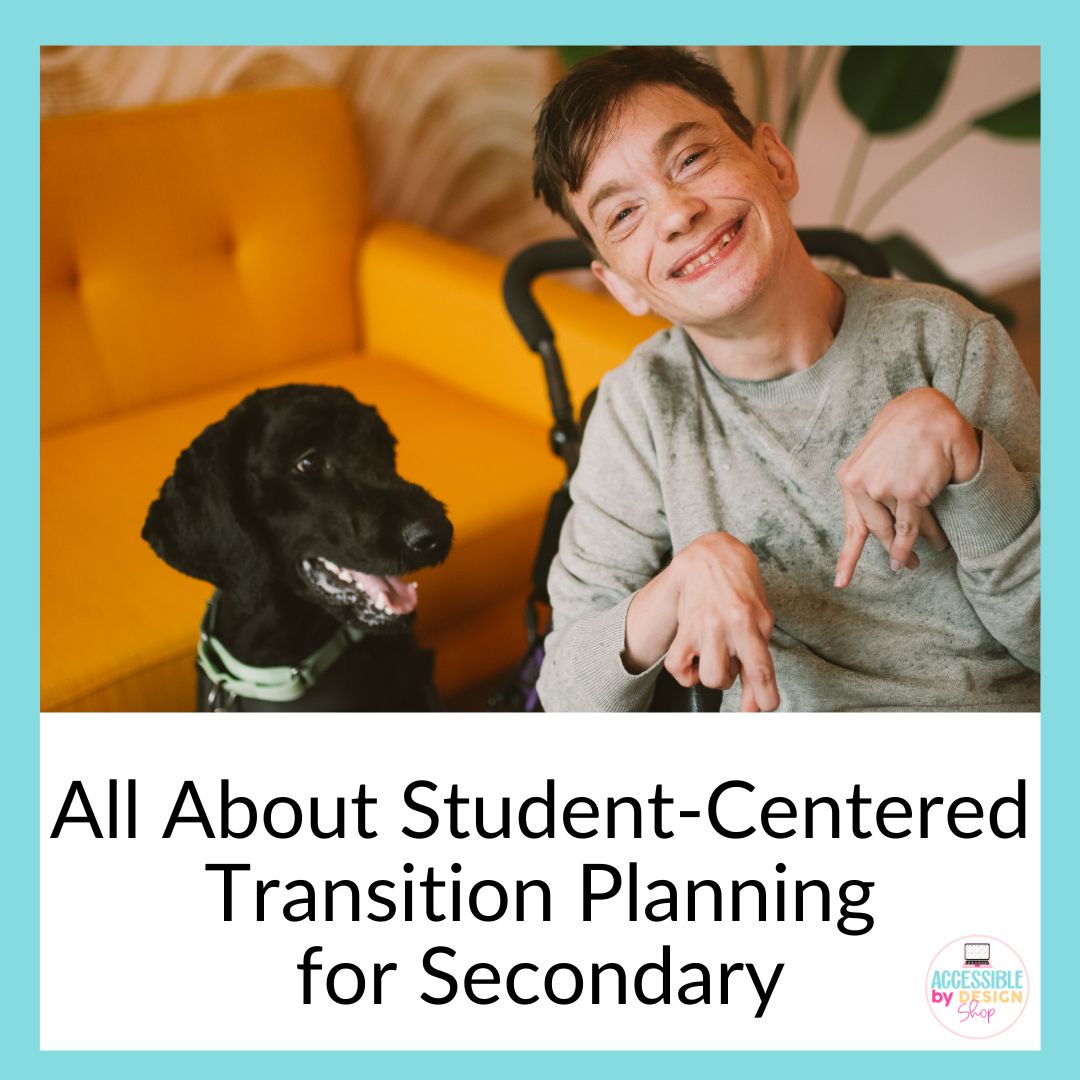
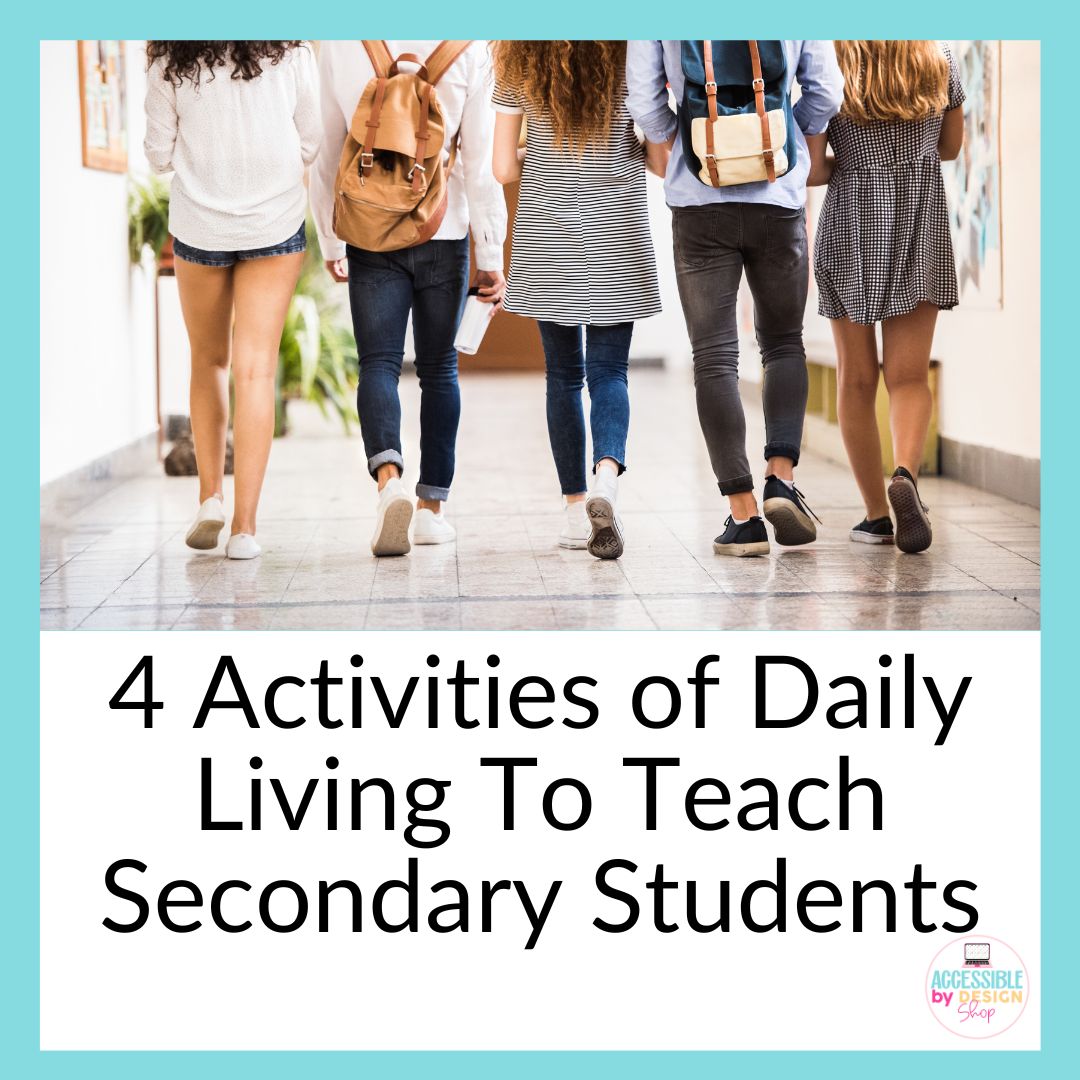
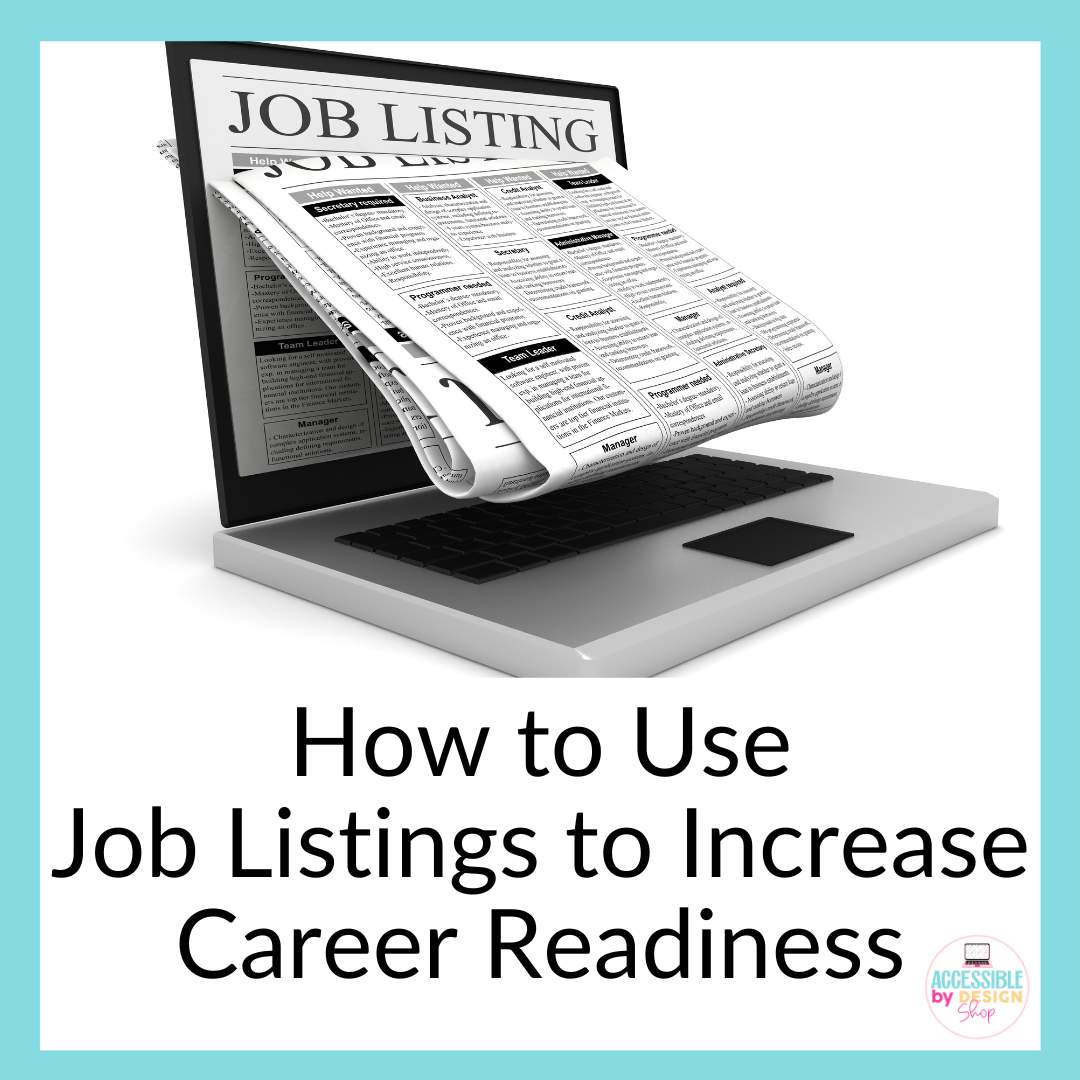
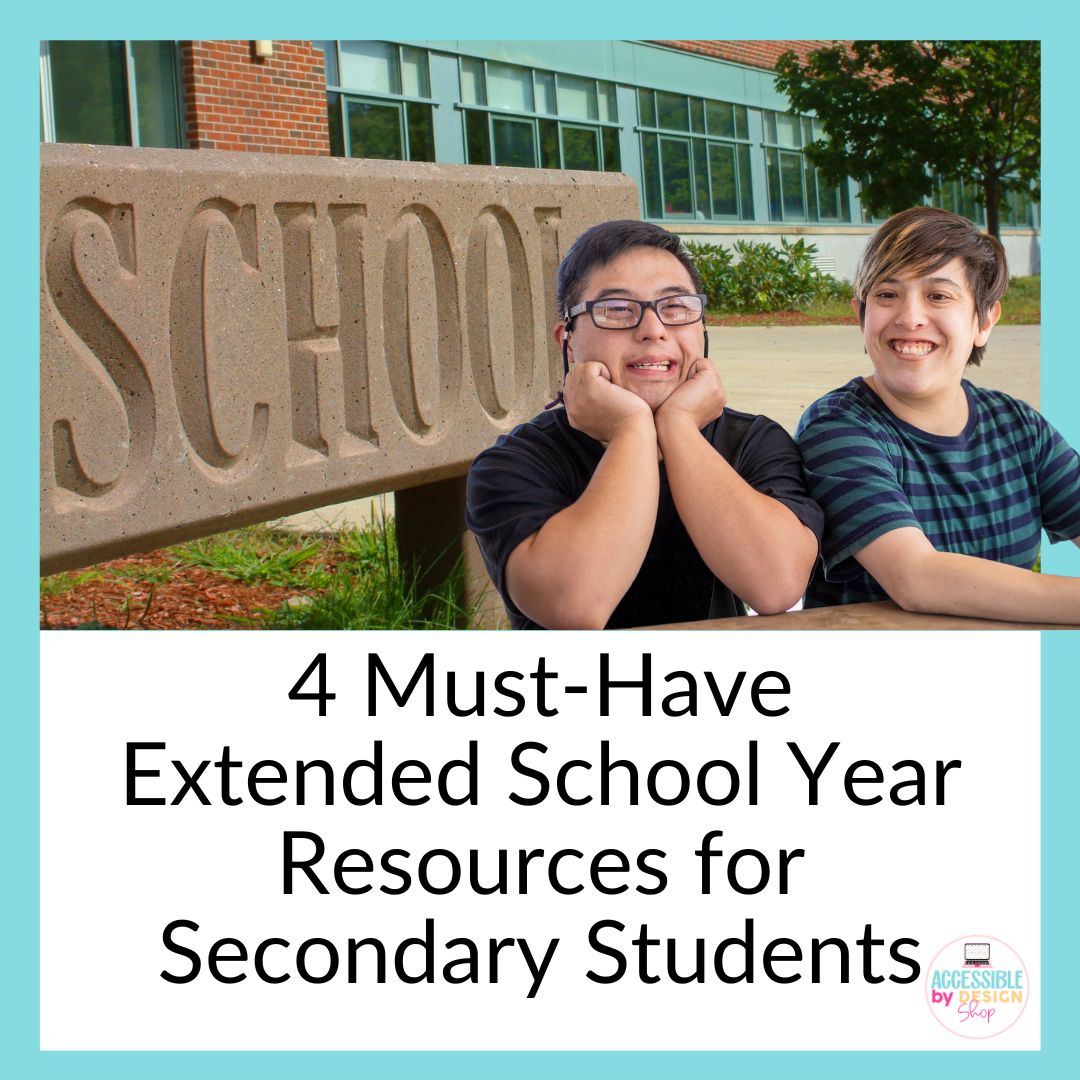
One Comment
Comments are closed.